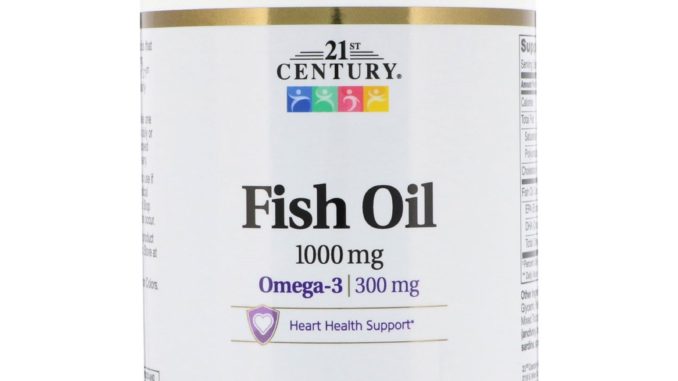
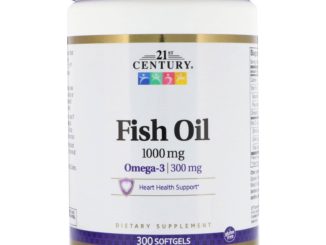
Fish Oil, 1,000 mg, 300 Softgels (21st Century) – Ingredients
- Fish Oil
Fish oil is recommended for the management of hypertriglyceridemia and to prevent secondary cardiovascular disorders. Fish oil is a major source of ω-3-polyunsaturated fatty acids (PUFAs) such as eicosapentaenoic acid (EPA) and docosahexaenoic acid (DHA). Clinical studies suggest that fish oil not only prevents the incidence of detrimental cardiovascular events, but also lowers the cardiovascular mortality rate. Fish Oil: Fish Oil,
Fish Oil: Fish Oil,
The Best Supplements – Unique Ingredient Identifier: TBSI ID: ISC99190,
References:
Cardiovascular Support: BALAKUMAR, Pitchai; TANEJA, Gaurav Fish Oil and Vascular Endothelial Protection: Bench to Bedside. Free Radical Biology and Medicine, 2012, 53.2: 271-279. PMID:22584102,
Brain / Mental Clarity: BOESPFLUG, E. L.; et al. Fish Oil Supplementation Increases Event-Related Posterior Cingulate Activation in Older Adults With Subjective Memory Impairment. The journal of nutrition, health & aging, 2016, 20.2: 161-169. PMID:26812512, FORTES CAVALCANTI DE MACêDO, Patrícia; et al. Fish Oil and Treadmill Exercise Have Age-Dependent Effects on Episodic Memory and Oxidative State of the Hippocampus. Applied Physiology, Nutrition, and Metabolism, 2017, 42.5: 503-510. PMID:28177723.
- Omega-3 Acids
The omega-3 fatty acids are essential dietary nutrients and one of their important roles is providing the fatty acid with 22 carbons and 6 double bonds known as docosahexaenoic acid (DHA) for nervous tissue growth and function. Inadequate intakes of omega-3 fatty acids decrease DHA and increase omega-6 fatty acids in the brain. Human studies suggest that an adequate dietary intake of ω-3 PUFA can slow the age-related cognitive decline and may also protect against the risk of senile dementia. Omega-3 Fatty acids benefit multiple risk factors including blood pressure, blood vessel function, heart function and blood lipids, and they have antithrombotic, anti-inflammatory and anti-oxidative actions. Supplementation with Omega-3 (ω3) fatty acids is recommended in individuals with elevated blood triglyceride levels and patients with coronary heart disease.
Omega-3 Acids: Omega-3 Acids, The Best Supplements – Unique Ingredient Identifier: TBSI ID: IS317040, References: Brain / Mental Clarity: INNIS, Sheila M. Dietary Omega 3 Fatty Acids and the Developing Brain. Brain research, 2008, 1237: 35-43. PMID:18789910, LAYé, Sophie; et al. Anti-Inflammatory Effects of Omega-3 Fatty Acids in the Brain: Physiological Mechanisms and Relevance to Pharmacology. Pharmacological Reviews, 2018, 70.1: 12-38. PMID:29217656, Cardiovascular Support: MORI, Trevor A. Marine OMEGA-3 Fatty Acids in the Prevention of Cardiovascular Disease. Fitoterapia, 2017, 123: 51-58. PMID:28964873, JAIN, A. P.; AGGARWAL, K. K.; ZHANG, P. Y. Omega-3 Fatty Acids and Cardiovascular Disease. Eur Rev Med Pharmacol Sci, 2015, 19.3: 441-5. PMID:25720716.
- Docosahexaenoic Acid (C22H32O2)
Docosahexaenoic acid (DHA), a polyunsaturated fatty acid (PUFA) enriched in phospholipids in the brain and retina, is known to play multi-functional roles in brain health and diseases. The inclusion of plentiful DHA in the diet improves learning ability, whereas deficiencies of DHA are associated with deficits in learning. DHA is taken up by the brain in preference to other fatty acids. DHA inhibits the development of inflammation in endothelial cells, alters the function and regulation of vascular biomarkers, and reduces cardiovascular risk. Docosahexaenoic Acid: Docosahexaenoic Acid, DHA, Doconexent, Cervonic acid,
Docosahexaenoic Acid: Docosahexaenoic Acid, DHA, Doconexent, Cervonic acid,
PubChem CID: 445580,
Chemical Abstracts Service: CAS: 6217-54-5,
ChemIDplus: 6217-54-5,
FDA Substance Registration System – Unique Ingredient Identifier: UNII: ZAD9OKH9JC,
The Best Supplements – Unique Ingredient Identifier: TBSI ID: IS3567E0,
References:
Brain / Mental Clarity: SUN, Grace Y.; et al. Docosahexaenoic Acid (DHA): An Essential Nutrient and a Nutraceutical for Brain Health and Diseases. Prostaglandins, Leukotrienes and Essential Fatty Acids, 2018, 136: 3-13. PMID:28314621, HORROCKS, Lloyd A.; YEO, Young K. Health Benefits of Docosahexaenoic Acid (DHA). Pharmacological research, 1999, 40.3: 211-225. PMID:10479465,
Cardiovascular Support: YAMAGATA, Kazuo Docosahexaenoic Acid Regulates Vascular Endothelial Cell Function and Prevents Cardiovascular Disease. Lipids in health and disease, 2017, 16.1: 118. PMID:28619112.
- Eicosapentaenoic Acid (C20H30O2)
The omega-3 fatty acid eicosapentaenoic acid (EPA) has multiple actions potentially conferring cardiovascular benefit, including lowering serum triglyceride (TG) and non-high-density lipoprotein cholesterol (non-HDL-C) levels and potentially reducing key steps in atherogenesis. Eicosapentaenoic Acid: Eicosapentaenoic Acid, EPA, Timnodonic Acid, Icosapent,
Eicosapentaenoic Acid: Eicosapentaenoic Acid, EPA, Timnodonic Acid, Icosapent,
PubChem CID: 446284,
Chemical Abstracts Service: CAS: 10417-94-4,
ChemIDplus: 10417-94-4,
FDA Substance Registration System – Unique Ingredient Identifier: UNII: AAN7QOV9EA,
The Best Supplements – Unique Ingredient Identifier: TBSI ID: ISBF7F70,
References:
Cardiovascular Support: GOLZARI, Mohammad Hassan; et al. Effect of Eicosapentaenoic Acid (EPA) Supplementation on Cardiovascular Markers in Patients With Type 2 Diabetes Mellitus: A Randomized, Double-Blind, Placebo-Controlled Trial. Diabetes & Metabolic Syndrome: Clinical Research & Reviews, 2018, 12.3: 411-415. PMID:29588138, BRINTON, Eliot A.; MASON, R. Preston Prescription omega-3 Fatty Acid Products Containing Highly Purified Eicosapentaenoic Acid (EPA). Lipids in health and disease, 2017, 16.1: 23. PMID:28137294,
Brain / Mental Clarity: BAZINET, Richard P.; et al. Brain Eicosapentaenoic Acid Metabolism as a Lead for Novel Therapeutics in Major Depression. Brain, behavior, and immunity, 2019, Jul 3: . PMID:31278982, CEDERHOLM, Tommy; SALEM JR, Norman; PALMBLAD, Jan ω-3 Fatty Acids in the Prevention of Cognitive Decline in Humans. Advances in nutrition, 2013, 4.6: 672-676. PMID:24228198. - Eicosapentaenoic Acid (C20H30O2)
- Docosahexaenoic Acid (C22H32O2)
- Omega-3 Acids
| Supplement Facts | ||
|---|---|---|
| Name: | Fish Oil, 1,000 mg, 300 Softgels | |
| Serving Size: | 1 Softgel | |
| Amount Per Serving | %Daily Value | |
| Calories | 10 | |
| Total Fat | 1 g | 1%‡ |
| Saturated Fat | 0.5 g | 2%‡ |
| Polyunsaturated Fat | 0.5 g | ××) |
| Cholesterol | < 5 mg | 2% |
| Fish Oil Concentrate EPA (Eicosapentaenoic Acid) DHA (Docosahexaenoic Acid) Total Omega-3 Fatty Acids | 1,000 mg 300 mg | ××) ××) ××) ××) |
| ‡Percent Daily Value based on a 2,000 calorie diet. ××) Daily Value not established. |
||
| Manufacturer: | 21st Century |
|---|---|
| Manufacturer Code: | 22921 |
| UPC Code (gtin12): | 740985229217 |
| Package Quantity | |
| Count | 300 |
Other ingredients
Fish body oil, gelatin, glycerin, purified water, refined soybean oil, mixed tocopherols.
Contains soy and fish (anchovy, cod, herring, mackerel, salmon, sardine, sprat).
No Added sugar, salt, yeast, artificial flavors or colors.
Fish Oil, 1,000 mg, 300 Softgels – Suggested Use
As a dietary supplement, adults take one (1) softgel with any meal, up to three (3) times daily or as directed by a healthcare provider. Do not exceed recommended dosage. Individual results may vary.
| Recommended Intake | |||
|---|---|---|---|
| Dose Unit | Dose Value | Frequency | Target Population |
| softgel | 1 | daily | adults |
Warnings
- Consult a healthcare provider prior to use if pregnant, nursing, on medications, have a medical condition or are planning a medical procedure. Stop use and contact a physician if adverse reactions occur.
- Keep out of reach of children. Do not use if product appears to be tampered with or seal is broken. Store at room temperature.
Dietary supplements similar to Fish Oil, 1,000 mg, 300 Softgels (21st Century)
The Fish Oil, 1,000 mg, 300 Softgels (21st Century) dietary supplement is available in Trinidad and Tobago and many others countries around the world. In Trinidad and Tobago this supplement contains: DHA, EPA, Fish Oil and Omega-3 Acids in its composition.


























































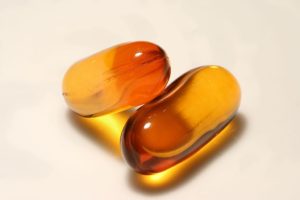
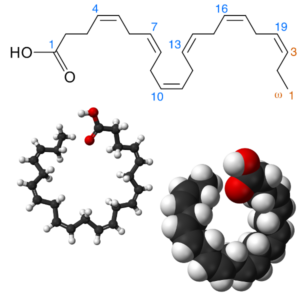
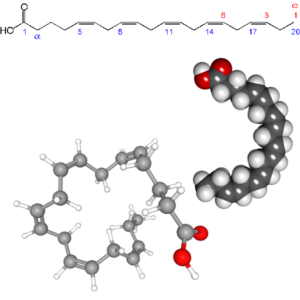
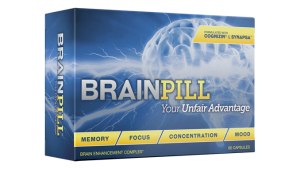
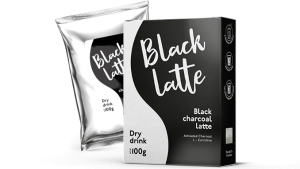
Leave a Reply